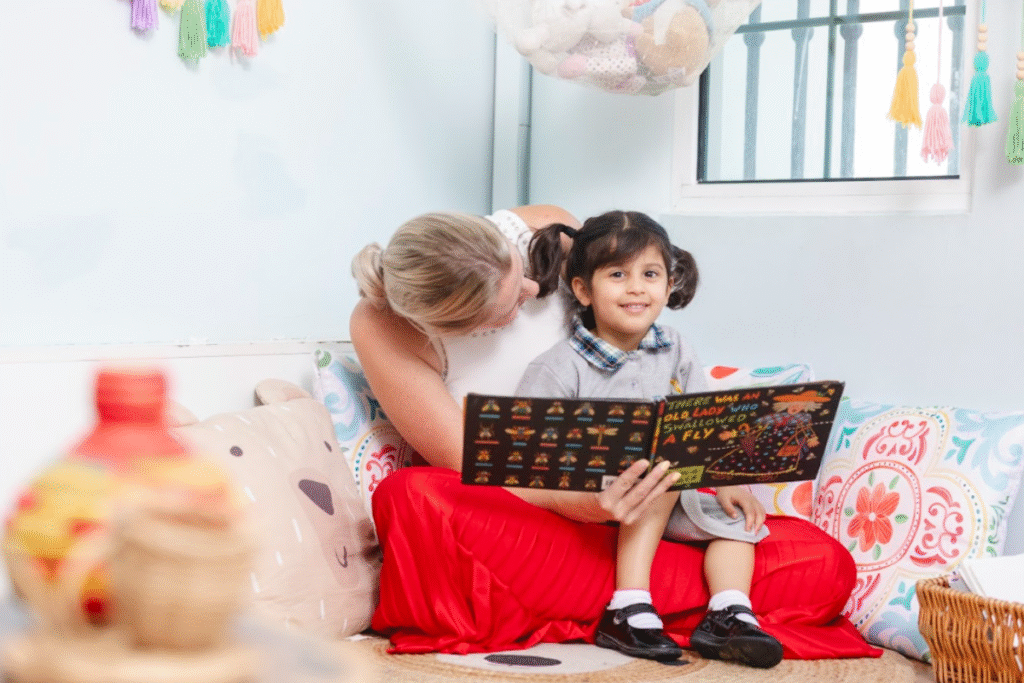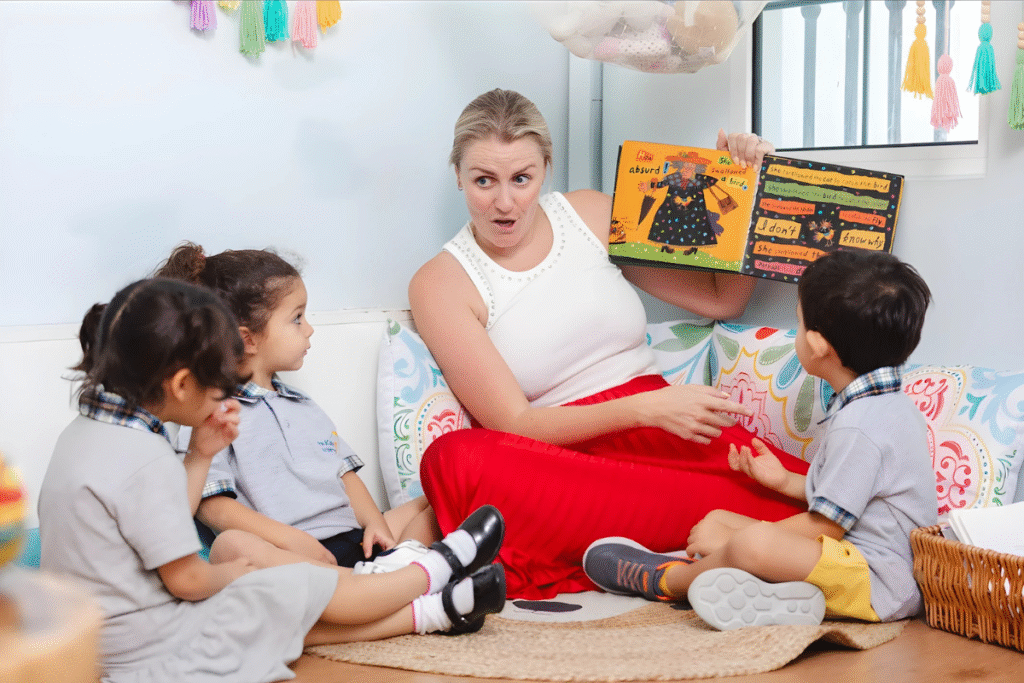Picture a four-year-old sitting mesmerised as her grandmother tells tales of brave princesses and talking animals. What this little one doesn’t know is that each story is quietly building the foundation for her future as a reader and learner.
This scene plays out in countless homes across Dubai, where parents are discovering that storytelling isn’t just entertainment, it’s one of the most powerful tools for developing literacy skills. When families find nurseries like Yellow Kite Nursery in Dubai, where storytelling takes centre stage, they often witness remarkable transformations in their children’s language development.
Building Language Skills Naturally
Every time you open a storybook, you create a language laboratory where words come alive. Picture a five-year-old who couldn’t say “butterfly” six months ago, now confidently talking about how the “magnificent butterfly transformed from a tiny caterpillar.”
When children listen to stories, their brains work incredibly hard. They process new words, follow sentence patterns, and track storylines all at once. This mental exercise creates crucial connections between sounds and meanings, making reading feel natural rather than difficult.
Children immersed in storytelling develop stronger phonological awareness—they become sound detectives, able to hear and play with language building blocks. This skill becomes their secret weapon when they start reading letters and words.
Growing Vocabulary Through Tales
Stories are treasure chests filled with words children would never hear in everyday conversation. Through tales, young minds meet “enormous” elephants, “peculiar” creatures, and “magnificent” castles—words that stretch beyond “big,” “weird,” and “nice.”
The beauty of story-based learning lies in repetition and context. When children hear beloved tales multiple times, new words become familiar friends rather than scary strangers. They absorb meanings naturally and start using these words in their own conversations.
Developing Thinking Skills
Every story is a mini masterclass in critical thinking. As children follow storylines, they constantly make mental connections: “What might happen next?” “Why did the character do that?” “How would I feel?”
Interactive storytelling transforms children from passive listeners to active participants. They question characters, predict outcomes, and connect story events to their own experiences. These thinking skills transfer directly to reading comprehension.
Creating Love for Learning
Perhaps the most magical aspect of storytelling is creating emotional bridges to learning. When children fall in love with characters—cheering for the brave mouse or worrying about the lost puppy—they form positive associations with books that last a lifetime.
“Whenever I think of my own childhood and storytelling, I’m immediately reminded of the precious memories I had with my parents, grandparents and teachers. It’s a moment of learning, connection and wonder. Something we pride ourselves on at Yellow Kite Nursery.” – Laura, Principal of Yellow Kite Nursery.
Yellow Kite Nursery in Dubai deliberately chooses stories reflecting Dubai’s rich cultural diversity, helping children see themselves and others in literature while building literacy skills and nurturing empathy.
Making Stories Come Alive
Effective storytelling goes beyond reading books aloud. Engaging nurseries use different voices for characters, props to create magical worlds, and encourage children to participate actively in unfolding narratives.
This approach creates lasting memories and deeper engagement. When children experience stories with their whole bodies—acting out scenes or adding sound effects—they build stronger learning pathways.
The Foundation for Success
The relationship between storytelling and literacy development forms the foundation of educational success. Parents choosing nurseries in Dubai should seek institutions that understand this powerful connection.
Through consistent exposure to quality storytelling, children develop essential skills that make reading feel natural and enjoyable. They build vocabularies, develop critical thinking, and form positive connections to literature.
“Literacy and language are so much more than instructional adult-led learning; in fact, it should be the polar opposite. When we embed and share a love of literacy from an early age, we create an innate desire to learn. Storytelling is a wonderful way to foster this, whether that’s from the page of a book or from imaginative storytelling, providing a child with the opportunity is what matters most.” – Laura, Principal of Yellow Kite Nursery”
At Yellow Kite Nursery in Dubai, this understanding transforms into daily practice, creating environments where young minds flourish through storytelling. Every tale becomes a stepping stone on the reading journey, beginning with those magical words: “Once upon a time…”


